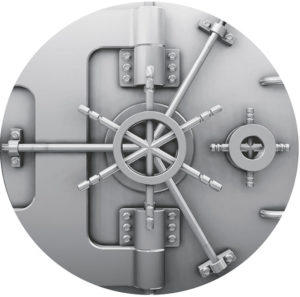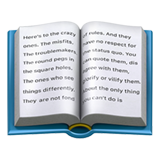Q: What’s a shifting dullness?
A: Medical students on a ward round.
After you’ve finished cringing, I’m sure you’ll agree that as a medical student, you’ve had more than your fair share of unengaging ward rounds during hospital placements. I’ve ran out of phalanges for how many times I’ve previously waddled after one without really knowing what’s going on.
That being said, ward rounds are a great opportunities to learn. Now, I’m all for efficiency – I don’t know about you, but Im not a fan of being somewhere unless I’m getting something from it. If you don’t do anything about it you may find yourself failing to be actively engaged for anywhere between 1-4 hours.
Ultimately this is a waste of your own time. You may tell yourself that you’re still learning from seeing the ward at work, but trading several hours for a mere few moments of learning isn’t productive at all.
I thought it would be useful to outline some tips on how to make ward rounds work for you. Here’s what we’re going to cover…
🥜Article in a nutshell
- Why ward rounds are often disappointing
- The perks of ward rounds
- How to STOP ward rounds wasting your time
In case you didn’t know, this blog is a part of my Study Hacks series – my top tips on HOW to study at medical school to study smarter and unlock your time.
Also, as MedEd is turning more and more digital, there are probably plenty of online resources you didn’t know about – I’ve collated all my top recommendations on WHAT to study in the MedEd Vault. Sign up below to access!
📩 Discover the internet’s best medical school resources.
Every week, I share study hacks and recommended MedEd resources to help you study medicine smarter not harder.
Forecast: 100% chance of inspo, 0% chance of spam.
👎Why ward rounds are often disappointing
One things for sure – if you’re experiencing dull ward rounds, it isn’t deliberate. Its important to appreciate the stressors the whole clinical team are under. Of course, patient safety must always prevail, and unfortunately this means that the quality of medical education may dwindle. Don’t take it personally, but regardless, try and make the most of it as explained later.
Here are some reasons why ward rounds are commonly NOT a fantastic way to learn:
- Doctors tend to be pushed for time – unbeknownst to you, the doctors you’re shadowing may have competing interests for time. They may have other wards to visit, meetings to attend, teaching to go to, or under the stress of finishing on time. Teaching along the way can be done, but is relies on an enthusiastic teacher.
- The context is all off – It can be exceedingly difficult to put what you’re seeing into context if you’re seeing back to back patients without a full understanding of their journey into hospital. Ward rounds serve their purpose in unveiling the jobs required to continue good patient care.
- Ward round lists clearly tell you the working diagnosis – If you can decipher the acronyms on the ward lists, it’ll give the game away for what the patient actually has. You’re then biased in how you approach the patient to take a history or examine them. This isn’t the be all and end all, but it hinders your opportunity to train your diagnostic skills.
- It is hard to get exposure to key presentations – in the ideal world you’d get to see patients with a tonne of different conditions that present in both similar and dissimilar ways. Unfortunately, you can never guarantee that you’ll come across a particular presentation over your whole placement, or see the acute management when a patient deteriorates.
- You spend only a few minutes with each patients – Safe speed is great for the clinical team, but suboptimal for learning. If you’re on a surgical ward round, it can feel like you’re flitting to the next patient faster than you can say ‘Nil by mouth’.
- People think in their minds – Hearing out loud how what a clinician is thinking whilst approaching a patient is invaluable for your learning. Unfortunately, if this isn’t consciously done for teaching purposes, the decision-making rationale is out of your grasp.
- Stimulation overload – I found it overwhelming to appreciate what’s actually happening when on a fast-paced ward round, seeing patients in quick succession. It’s notoriously difficult to pick up the minutiae which are guiding clinical decisions and you may feel that a lot of what’s happening is going over your head.
👍But its not all bad…
Have you ever had a motivated educator leading the ward round? Someone who actively engages you, questions you and gets you involved? Im sure you’ll agree its a fantastic learning experience allowing you to put theory into practice. N.B. Consider the above when you finish medical school – actively engaging students makes a real difference to their learning.
Ward rounds can be a great learning environment and here are some reasons why:
- See what the job involves – you’re seeing what newly qualified and senior doctors often do for a living
- Awesome if you’ve seen a lot before – the more you see, the more you can begin to appreciate how the department works and the rationale behind decision-making.
- Great if you’ve got an engaged educator with you – for most people, episodic memory is a more powerful way to retain information than studying alone. You’ll likely find that engaging ward round experiences stay locked in your memories.
- You may pick up some interesting signs – If you’ve got a patient with a known diagnosis, its’ in your interest to familiarise yourself with any clinical signs they might have. The more you see, feel and listen too, the better you’ll become at picking them up.
- If you are engaged, you can make a great rapport with clinicians – over time, developing trust with your team members will likely lead to them giving you more involvement, communication and responsibilities.
- Patients are generally happy for students to get involved – More often than not, patients tend to be more than willing for future doctors to listen to their chests, or ask questions during ward rounds. Being respectful to patients and engaging on the ward rounds lets them see you as a member of the clinical team and makes it easier to approach them for histories, examinations and other practical skills (if applicable) at a later time.
- The opportunity to develop ward round proficiency skills – Discussed below
🙌How to STOP ward rounds wasting your time
- Act the part – the way you hold yourself in placement is key. Having an aura of confidence, helpfulness and inquisitiveness will bring opportunity. It can be daunting, but try to step out of your comfort zone to be present.
- Act professional in punctuality and appearance
- Maintain eye contact and smile regardless of who you’re communicating to
- Act inquisitive and respectful towards the clinical team
- Be on hand and quick to react if engaged
2. Keep questioning and ask about exam findings – As long as you’re not holding up a busy ward round, be sure to show interest by asking questions to the clinical team. Check for points of clarification about their history, ask why (or why not) a certain management plan is being undertaken and ask if any of the patients have any known clinical signs. Ask if you can take a listen to their chest or perform a focused exam. N.B Remember to be considerate of where you’re asking questions. These are best saved between each patient, rather than asking in front of the patient – you don’t know how the patient will perceive the questions or answers.
3. Build rapport with clinical staff on the ward – If you actively engage as above, you’re likely to show keenness to your clinical team. Over time they’ll come to know that you relish learning opportunities and are likely to bring them to you. For the more junior staff, it’s a useful way for them to practise their own teaching skills too.
4. Get involved – Undertaking roles of repsonsilibity during the ward round is a top tip for making the most of your time. You’ll learn proficiency skills and build trust with your clinical team. Try to get a promotion from being the honorary chart holder, and get engaged with writing in/typing the clinical notes, fetching prescription charts and writing up drugs to be singed off. Ask the team how you can help out and be reliable. This is obviously more tricky if your hospital is entirely digital and you don’t have computer access, but even puling the curtains around and greeting the patients will be noticed.
5. Get speaking to patients before – A highly valuable task is to clerk new ward patients before a ward round (either immediately before or the day before). Try to gain an understanding of their presentation and management so far. You can practise presenting to the clinical team during the ward round and show you have knowledge on the background of the patient. It’ll be easier for you to put into context any clinical decisions that are made, and you’ll gain a greater understanding of their time in hospital. It’ll help you gain rapport with the patients themselves too.
🙌Conclusion
So there you have it, six ways to make the most of ward rounds. Using your time effecitivley is key to creating the work-life balance that will reward you with academic excellence and enough downtime. Ward rounds are often a compulsory part of hospital patients – I hope that this blog has helped to unlock some new appraoches that’ll help you become more sharp during the shiftning dullness.




